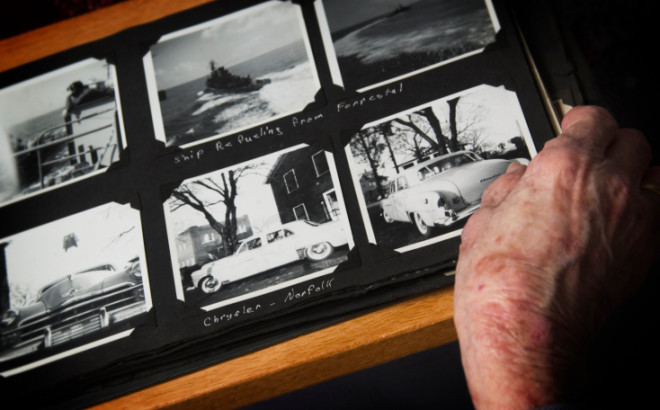A simple lesson on aging: What you feel today may indeed be what you feel then
He’d called a former girlfriend of his.
That’s what the older gentleman we sometimes helped by providing transportation to medical appointments told me, in casual conversation in the midst of a return trip home.
Even though his wife had passed away a few years before, I was a bit shocked by this—particularly when he told me he’d last seen the “girl” nearly 70 years before.
Their conversation apparently went nowhere fast, for she was married, he learned. Beyond that, he proffered, chuckling a bit, she still seemed miffed that he had asked her to wait for marriage until he returned from World War II.
Waiting, he mused, had not been in her character.
Fast-forward a few years to this week. As I stood in line to vote, an older man in front of me seemed ready to pick a political fight with another older gentleman standing off to the side. Perhaps they knew each other, perhaps not, but it was certainly obvious one was “blue,” the other “red.”
The second man seemed too good-natured to take the bait and joked with the first, trying to get his counterpoint across without engaging in argument. But he appeared only partly successful.
As the front of the line edged closer to the voting machines, one of the poll workers told the man in front of me to wait a moment, so that she could steer his wheelchair behind the nearest machine. He seemed irritated that others were allowed to vote before him.
“She said she was just waiting for that particular machine to open,” I offered over his shoulder.
“I heard her,” came the immediate response, a little curt.
Okay!
But then I realized: Of course, he had heard her. Being hard of hearing is not an automatic condition of later years.
Just as wishing to reconnect with the past is not something that vanishes with age.
Many others have made the point before me—growing old does not necessarily mean significant changes in hopes, dreams and irritations or, for that matter, assertiveness around issues politic.
And I should certainly realize that—even though I’m just a half-decade away from retirement age, I still feel, at least in my mind, that I’m 20 or so. I have sometimes joked with the college students I teach part-time that I’m still trying to figure out what I want to do when I “grow up.”
Lonely, the gentleman who reached out to that girlfriend undoubtedly felt little different, at least internally, than when he had courted her so many years before.
It’s a good lesson to keep in mind when we interact with older adults.
I know I have a tendency, when helping an aunt in her 90s, to be a little off-put by her anxieties, to sometimes treat them as products of age.
Dumb me.
They are as real and as important to her as they’ve always been.
I just need to remind myself of the lessons of that call to the girlfriend and of the polling place: Most of us will eventually be what are sometimes called “of advanced years,” but, in many cases, feeling little different inside, wondering how we arrived there so quickly and pondering what’s next on the agenda for hopes and dreams we’ve carried with us a half-century or more.
By William Swanger
Senior Vice President
Corporate Communications & Public Relations
Because we review comments, they do not appear immediately. Please do not submit each comment more than once. Please review our comment policy.


